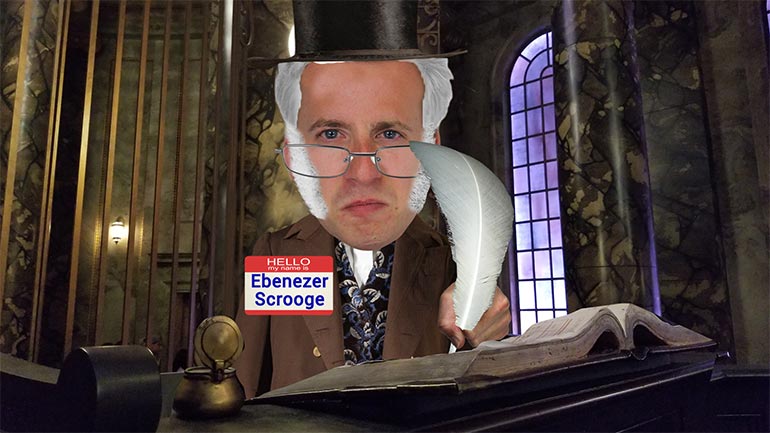ShmoopTube
Where Monty Python meets your 10th grade teacher.
Search Thousands of Shmoop Videos
Tech Videos 99 videos
What is covariance? Covariance is the comparison of how assets move in the markets. Positive covariance is when assets move in tandem, such as when...
What is After Hours Trading/Extended Trading? After hours trading describes any trades made after the market closes or before the market opens. Bec...
What is volatility? In the world of investing, volatility basically means riskiness. It looks at the returns for stocks or indexes, and if they are...
Finance: What are the Clayton Act and the Sherman Antitrust Act? 72 Views
Share It!
Description:
What are the Clayton Act and the Sherman Antitrust Act? The Sherman Antitrust Act of 1890 was the first legislation enacted by Congress to outlaw monopolies and cartels. This was specifically targeted at monopolies such as John D. Rockefeller’s Standard Oil, which was the most glaring example at the time. The Clayton Act of 1914 expanded the Sherman Act to include prohibiting of predatory pricing and preventing mergers that could potentially lead to pseudo monopolies based on their possible impact to free trade. The Clayton Act also legalized trade union practices, such as strikes, picketing, and boycotts.
- Social Studies / Finance
- Finance / Financial Responsibility
- College and Career / Personal Finance
- Life Skills / Personal Finance
- Finance / Finance Definitions
- Life Skills / Finance Definitions
- Finance / Personal Finance
- Courses / Finance Concepts
- Subjects / Finance and Economics
- Finance and Economics / Terms and Concepts
- Terms and Concepts / Accounting
- Terms and Concepts / Careers
- Terms and Concepts / Company Management
- Terms and Concepts / Ethics/Morals
- Terms and Concepts / Metrics
- Terms and Concepts / Regulations
- Terms and Concepts / Tech
- Terms and Concepts / Trading
Transcript
- 00:00
Finance a la shmoop what are the Clayton Antitrust Act and the Sherman Antitrust
- 00:07
Act? well they're all about controlling monopolies which a century ago were
- 00:14
called Trust's ironic in that well they essentially stole the trust from the
- 00:18
people, the common Jo, Ma and Pa Kettle well in late 19th century even more so [Ma and Pa Kettle standing together]
- 00:24
than today white men generally ruled the Western
Full Transcript
- 00:27
world and were you know very clubby, Bob here in church pew seven likes to do
- 00:34
business with Mike here in pew eight Bob ran a tugboat shipping line hauling [Bob sailing a tugboat]
- 00:40
grain down the Mississippi, Mike here had a bunch of farms and liked to do
- 00:44
business with Bob and well there's Jim here in pew six who runs the entire
- 00:49
region's worth of banks then he liked loaning money to farms because well back [Jim with stack of cash]
- 00:55
then they were always money good to pay their debts yeah there was a time farms
- 01:00
were considered you know safe bet and the three of them formed essentially a
- 01:05
vertical monopoly controlling grain distribution in the center of the [Ship travels through center of the US]
- 01:10
country from creation to distribution to sales to you know all the financing and
- 01:16
banking and stuff underneath it if they wanted to raise prices on the grain for
- 01:20
bread well who was to stop them you know there were no competitors why were there
- 01:25
no competitors, because the three had teamed up to elbow out anyone else [competitor appears and Mike elbows him away]
- 01:30
who might come along and well you know cut them out of the precious resource
- 01:34
flows of whatever was needed and soon the three had enough scale so that if
- 01:38
they were buying resources for a million acres of farmland well, their volume
- 01:44
discount pricing discount discount discount were so massive that they could
- 01:50
undercut anyone who came along wanting to compete fair and square [Prices of grain appear]
- 01:53
well the Sherman Antitrust Act of 1890 was the first set of anti monopoly laws
- 01:58
to come down the pike like it says right there in the name the act was anti
- 02:02
trusts it was passed to bust up any unfairly organized legal arrangements or [Sherman Antitrust Act strikes company]
- 02:08
would-be monopolies which would prevent from taking advantage of unknowing
- 02:13
consumers and provide for a competitive marketplace because then who wins and a
- 02:18
consumer that's who the government's protecting right so what did this mean [Jim Bob and Mike in a farm]
- 02:22
for poor old Mike Bob and Jim well now they couldn't just raise grain prices
- 02:27
Willy or nilly suddenly there were strictures in place
- 02:31
and our gruesome threesome had to abide by this new rule of law which meant [Jim Bob and Mike in court and judge holds up Sherman Antitrust Act]
- 02:37
pricing their product fairly and reasonably whatever that meant so that
- 02:41
no one was having to sell the family farm to afford to buy a loaf of
- 02:46
sourdough you know for their kids and then clever lawyers defending bazillionaires
- 02:51
poked so many holes in the Sherman Act it looked like one of the real [Lawyer poking holes through document]
- 02:55
housewives after her latest Botox treatment so along came the Clayton
- 03:00
Antitrust Act in 1914 to fill in those holes and puff up the cheeks of law as
- 03:06
it were well any little loopholes discovered by the clever lawyers were [Plasters appear on Sherman Antitrust Act]
- 03:10
closed and more specifics were added to the language so it was even harder for
- 03:16
folks like Mike Bob and Jim to pull one over on Ma and Pa Kettle, so yeah you
- 03:21
know it's a Billy Joel famously saying 'It's just a matter of trust'.... [Man in club singing]
- 03:27
ask your parents
Related Videos
GED Social Studies 1.1 Civics and Government
What is bankruptcy? Deadbeats who can't pay their bills declare bankruptcy. Either they borrowed too much money, or the business fell apart. They t...
What's a dividend? At will, the board of directors can pay a dividend on common stock. Usually, that payout is some percentage less than 100 of ear...
How are risk and reward related? Take more risk, expect more reward. A lottery ticket might be worth a billion dollars, but if the odds are one in...







































































































